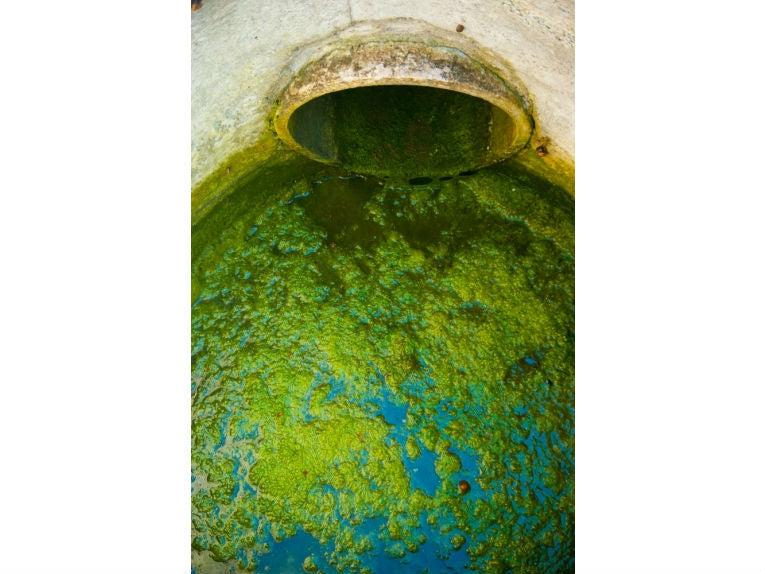A new report by the investigative news site, ProPublica, has lifted the lid on one of the oil industry's best kept secrets - the dumping of toxic waste underground - and the lengths some companies have gone to, to evade even the lax regulations that govern it. And while rocks lying thousands of feet underground may seem safely 'out of sight, out of mind', the report reveals a growing number of leaks of hazardous wastes being injected into the Earth. A better adage may well be: 'what goes down, must come up'.
The pumping of waste water underground is nothing new - in fact it has been standard practice for the oil and gas industry for over 70 years. The pumping water into oil-fields is a lucrative way of squeezing more fossil fuels out, keeping the pressure in the reservoir high, even as oil is extracted. But what the ProPublica report reveals is the scale of the activity, and the struggle that regulators are having in keeping tabs on 100,000's of injection wells. And it is only now, after decades of squeezing waste water back into the ground, that the problems are - literally -starting to bubble to the surface.
Violations, failings and leaks
While the Environmental Protection Agency (EPA) has struggled to keep up with inspections on the 150,000 active injection wells in the US, those inspections that have been done have revealed 17,000 wells that violated regulations. Over 7,000 of these wells had casings - there to stop waste water leaking into drinking water supplies - that had failed in some way. And in at least 140 cases, it was found that companies were injecting waste unlawfully.
A sophisticated and illegal misleading of the EPA, and state well inspectors, has also been revealed. Companies managing injection wells have been found to have installed dummy casing tubes, to try and cover up from inspectors that their well casings had failed. In one case, that came to light in 2009, Texas Oil and Gathering was discovered taking hazardous refinery waste chemicals, and dumping them into injection wells. These were authorized to be used only for drilling waste waters. That may have saved the refinery money, but at the potential risk of contaminating drinking water supplies with dangerous chemicals.
Salt and water - and explosive chemicals
One of the worst examples of the lethal dangers of injection wells played out in the same Texan town of Rosharon, back in 2003. There, waste being off-loaded for injection was ignited by a spark from a truck engine, killing 3 workers, and seriously injuring several others. While the fluids that such wells inject are commonly are referred to, by the oil industry, as merely 'brines', they often contain significant amounts of flammable hydrocarbons. Those working at the Rosharon site weren't told of this danger.
Such lethal accidents are rare, but highlight the fact that the 10 trillion gallons of waste waters being pumped back underground contain far more than just salt and water. The range of hazardous chemicals they can contain has also grown greatly, since the massive expansion in hydraulic fracturing (or fracking) across the US. Fracking uses vast quantities of chemical-laden water, which must be disposed of. Pushing the disposal problem underground is often seen as the easy option.
'A lot of people are going to get sick'
But with injection wells showing such high levels of failure, the widespread pollution of underground drinking water reservoirs is being seen as all-but-inevitable - as Mario Salazar, a 25-year veteran EPA engineer, told ProPublica: "In 10 to 100 years we are going to find out that most of our groundwater is polluted. A lot of people are going to get sick, and a lot of people may die."
So while environmental regulation has helped remove the worst pollutants from our air, streams, river and seas, the biggest toxic dump has been building up right under our feet. Ending the regulatory 'free pass' held by the US oil and gas industry may help prevent the problem from getting worse. But that will cost.
And with US political scene dominated by the short-term need to keep Americans in jobs, any attempt to sensibly regulate the oil industry is easily spun into a vote-loser. Will it only be when the Earth starts disgorging back all the poisons we've foisted upon her that the public, and policy-makers, will sit up and take action?










